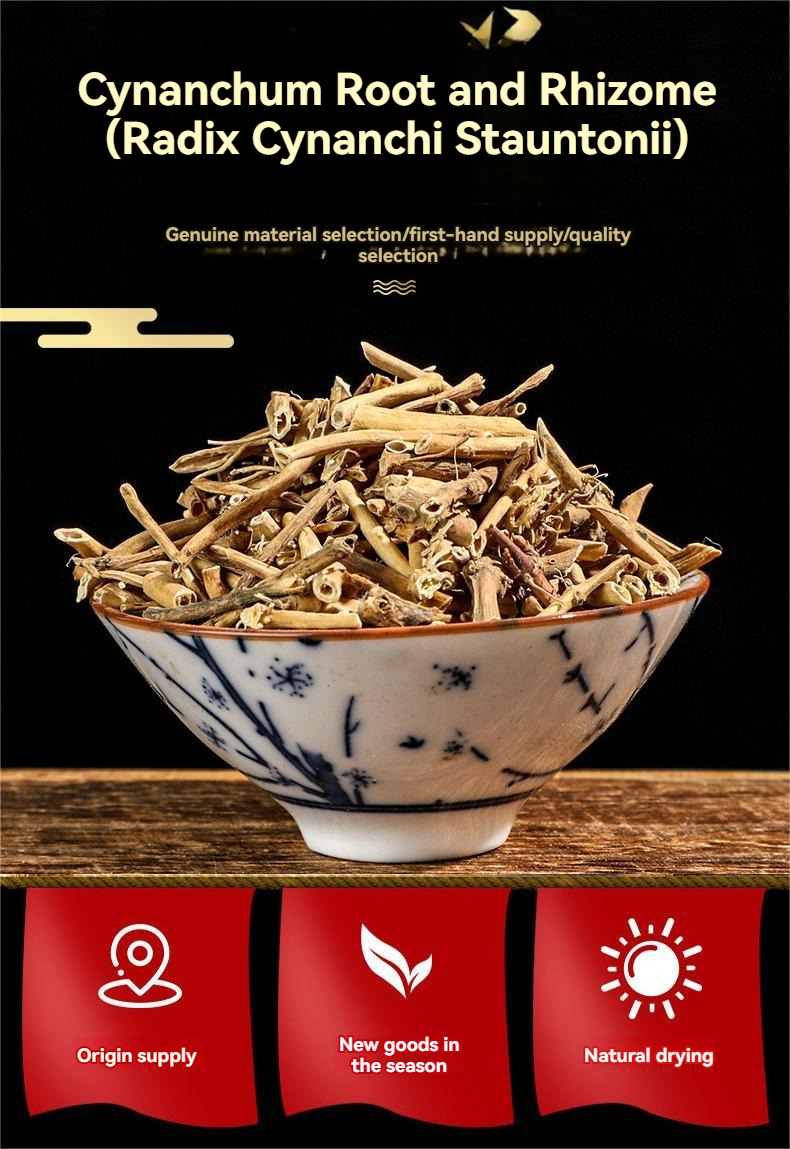

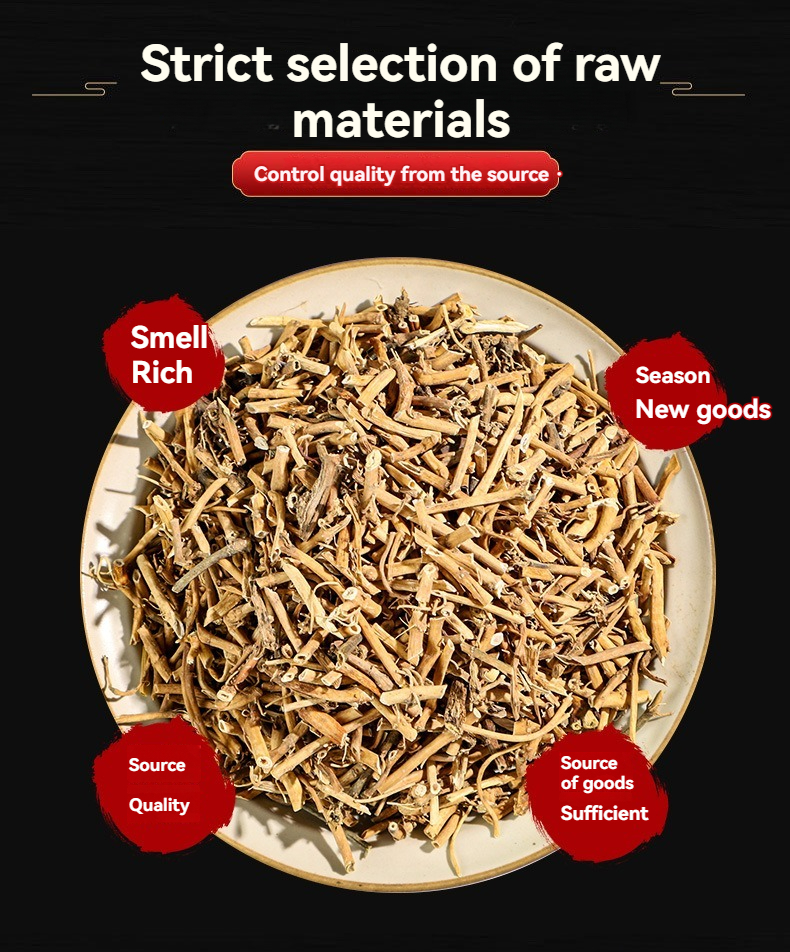

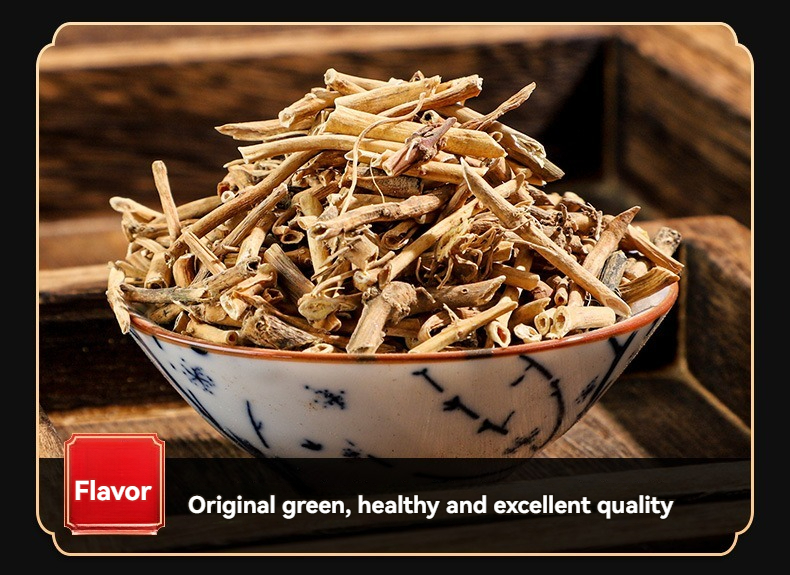
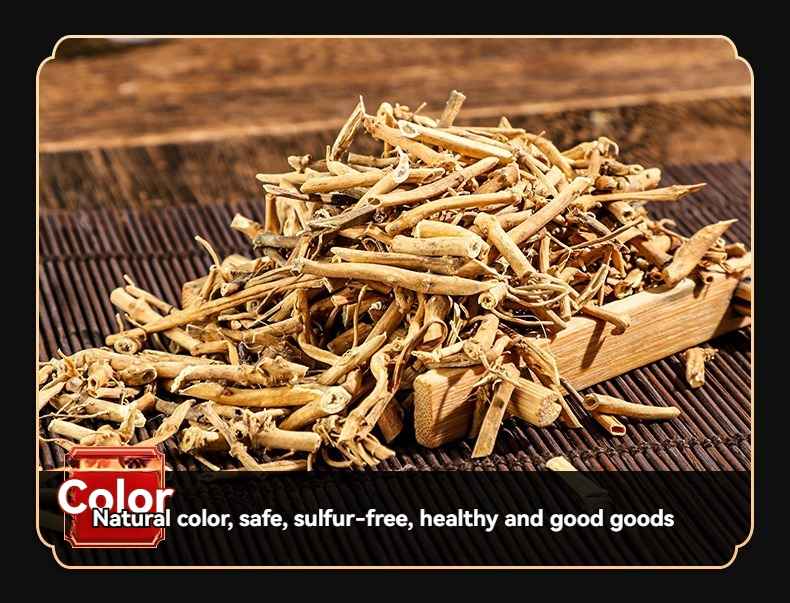

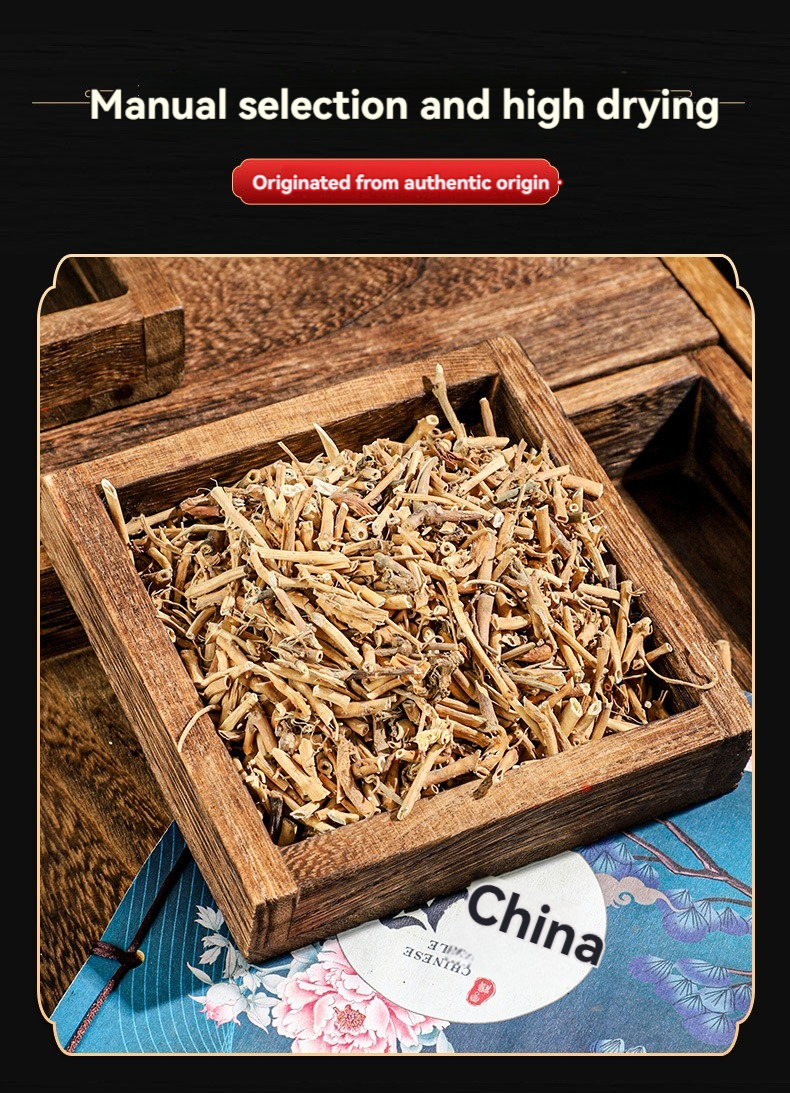








Baiqian (Cynanchum stauntonii) exhibits three primary pharmacological actions: directing qi downward, resolving phlegm, and arresting cough.
1. Directing Qi Downward
Baiqian, with its pungent and bitter properties and mild warmth, enters the Lung Meridian. It directs rebellious qi downward, effectively treating symptoms caused by chronic cough with qi congestion, such as:
Generalized edema, shortness of breath, and abdominal distension
Audible laryngeal stridor during respiration
Inability to lie flat due to respiratory distress
Clinical Note: Its downward-directing action alleviates lung qi obstruction, restoring normal respiratory function.
2. Resolving Phlegm
By targeting the Lung Meridian, Baiqian resolves phlegm accumulation, addressing:
Cough with gurgling sounds in the throat
Sleep disturbances due to nocturnal cough
Mechanism: It disperses phlegm turbidity in the lung, reducing mucosal irritation and bronchial spasms.
3. Arresting Cough
Baiqian’s bitter-warm nature suppresses cough reflexes. When combined with other herbs, it treats severe respiratory syndromes:
Chronic cough with upward-rushing qi, edema, and dyspnea
Inability to recline (day or night), requiring sitting posture
Wheezing resembling a water bird’s call ("shuǐ jī shēng")
Key Formula Integration:
Decoction with Ziwan (Aster tataricus) and Banxia (Pinellia ternata) synergistically enhances antitussive and phlegm-resolving effects.